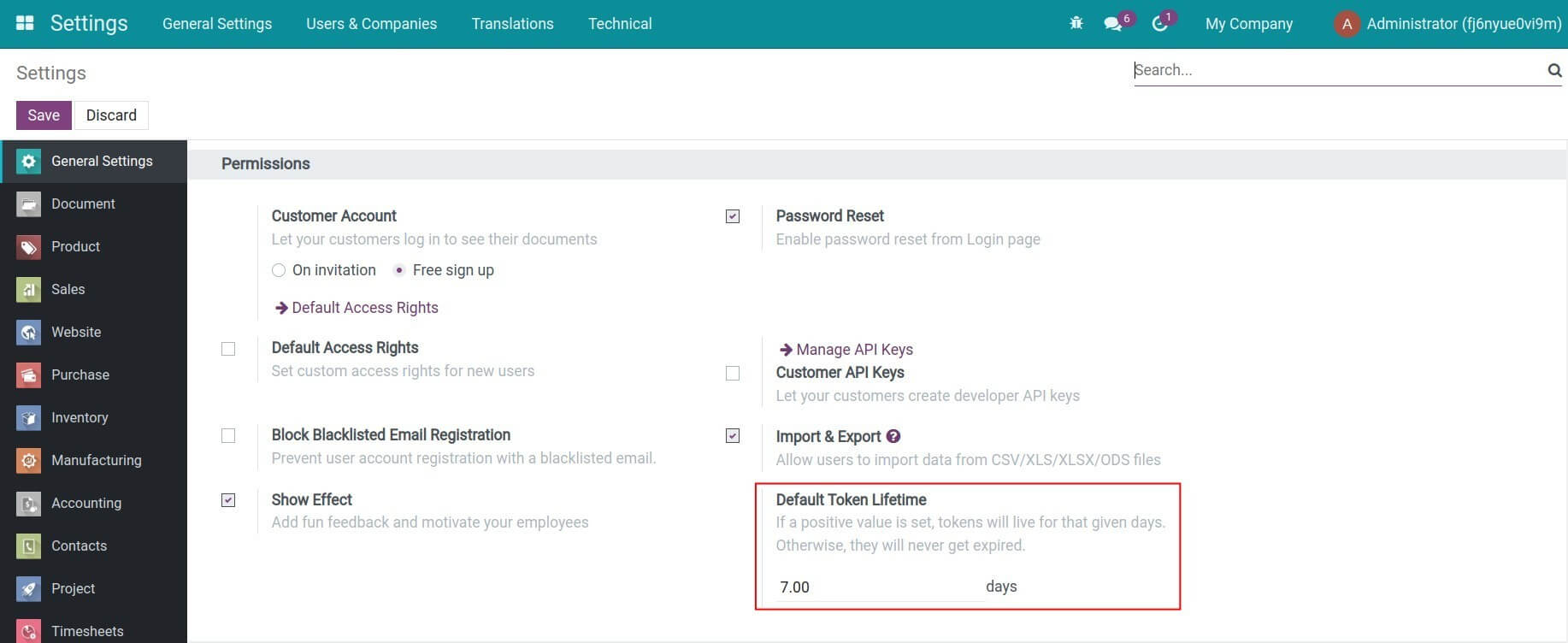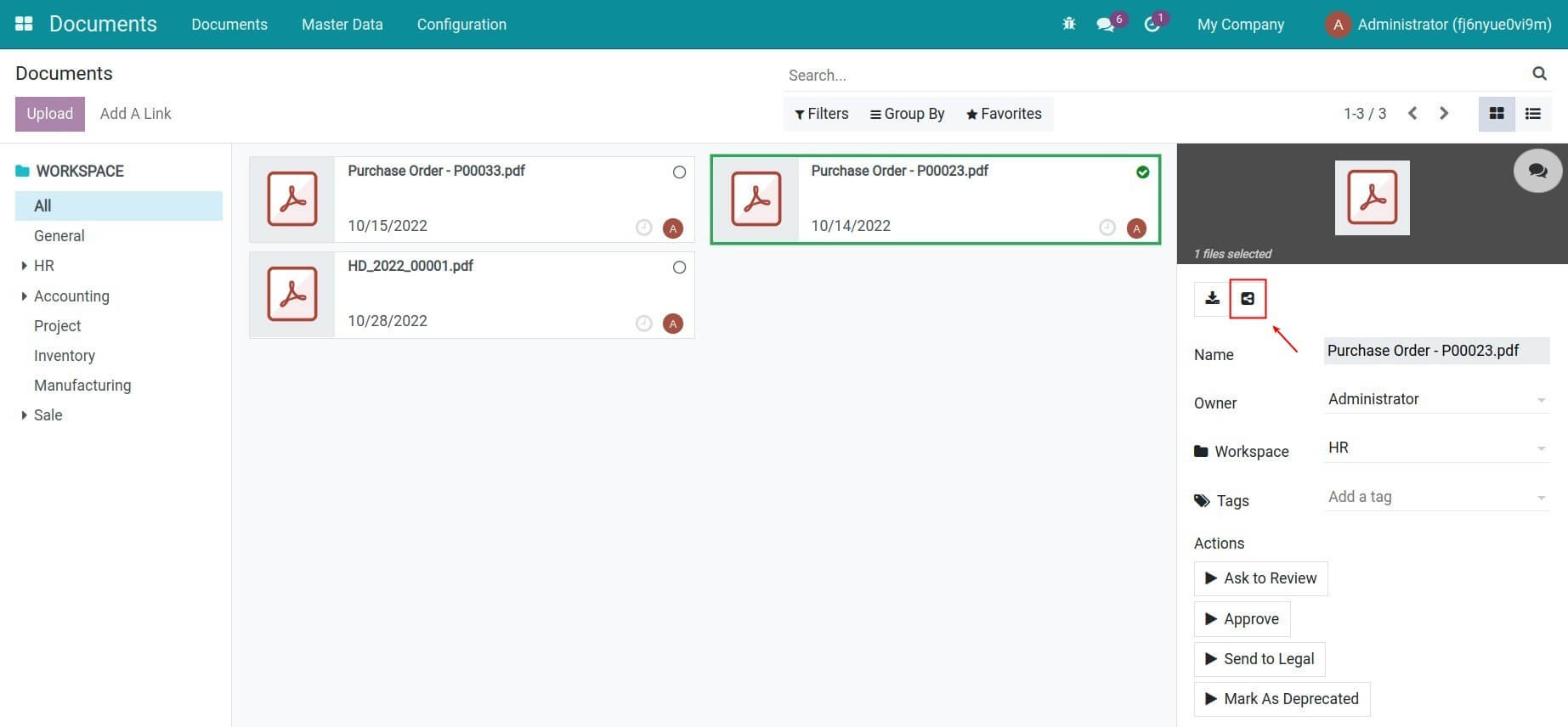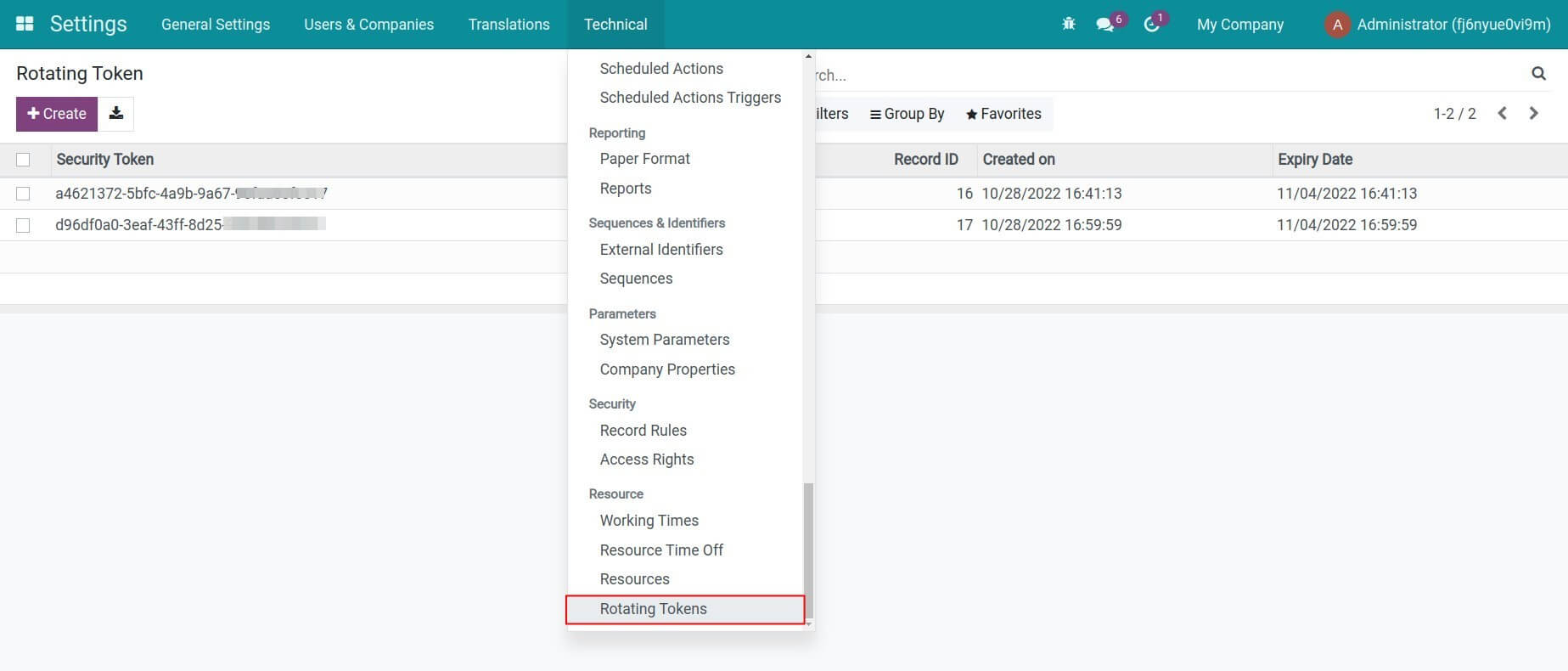Demo video: Token Expiration
Problem
When you share an URL (E.g: a link to view certain documents, a link to the verification email of a newly created account, etc.), you will need to manage the access time of those URLs for data security. The expiration time of each URL is defined by a unique token.
System provides the Default Token Lifetime feature to allow users to set up the access time of all the URLs to a certain number of days. However, it's impossible to adjust the expiration time of each URL separately.
Solution
ERP software creates the to_token_expiration module to support the shared token management. With this module, you can change the expiration time of each shared URL separately.
Key Features
- Token Lifecycle Management
- Set default expiration time for all shared URLs.
- Customize expiration time for each specific URL.
- Automatic Access Revocation
- Tokens are disabled after expiration, preventing unauthorized access.
- Token Renewal
- Extend token validity without generating new shared links.
- Simple Configuration
- Easy setup and management through the system configuration interface.
Benefits
- Enhanced Security
- Prevent unauthorized access after link expiration.
- Flexibility
- Easily adjust access time based on specific needs.
- Convenience
- No need to reshare links when extending access.
Target Users
- Businesses
- Share internal or external documents securely.
- Authentication Platforms
- Send verification links via email.
- System Administrators
- Strictly control shared URLs and access rights.
Editions Supported
- Community Edition
- Enterprise Edition
Installation
- Navigate to Apps.
- Search with keyword to_token_expiration.
- Press Install.
Instructions
Below is an example of how to use this module to manage the URL expiration while sharing documents in the Documents app.
To manage the tokens, you need to activate the developer mode.
Step 1: Navigate to Settings > General Settings, find the Default Token Lifetime feature, and configure the expiration time of the documents sharing URLs, counting by days.

Read more details on how to configure the expiration date for document sharing.
Step 2: Go to the Documents app, select the documents that you want to share, press Share then click Generate URL. An URL to share the selected documents will be generated automatically.


Step 3: Navigate to Settings > Technical > Rotating Tokens to view the token auto-created for the URL generated in step 2.

Step 4: Click on any token, you will see the default Expiry Date of this token is the Default Token Lifetime configured previously. This information can be modified.

Note: After the Expiry Date, other people no longer can view documents from the URL that you have shared with them.
This software and associated files (the "Software") may only be
used
(executed, modified, executed after modifications) if you have
purchased a
valid license from the authors, typically via Odoo Apps,
or if you
have
received a written agreement from the authors of the
Software (see the
COPYRIGHT file).
You may develop Odoo modules that use the Software as a library
(typically
by depending on it, importing it and using its
resources), but
without
copying any source code or material from the
Software. You may distribute
those modules under the license of your
choice, provided that this
license
is compatible with the terms of
the Odoo Proprietary License (For
example:
LGPL, MIT, or proprietary
licenses similar to this one).
It is forbidden to publish, distribute, sublicense, or sell
copies of the
Software or modified copies of the Software.
The above copyright notice and this permission notice must be
included in
all copies or substantial portions of the Software.
THE SOFTWARE IS PROVIDED "AS IS", WITHOUT WARRANTY OF ANY KIND,
EXPRESS OR
IMPLIED, INCLUDING BUT NOT LIMITED TO THE WARRANTIES OF
MERCHANTABILITY,
FITNESS FOR A PARTICULAR PURPOSE AND
NONINFRINGEMENT. IN NO EVENT
SHALL THE
AUTHORS OR COPYRIGHT HOLDERS
BE LIABLE FOR ANY CLAIM, DAMAGES OR OTHER
LIABILITY, WHETHER IN AN
ACTION OF CONTRACT, TORT OR OTHERWISE,
ARISING
FROM, OUT OF OR IN
CONNECTION WITH THE SOFTWARE OR THE USE OR OTHER
DEALINGS IN THE
SOFTWARE.






